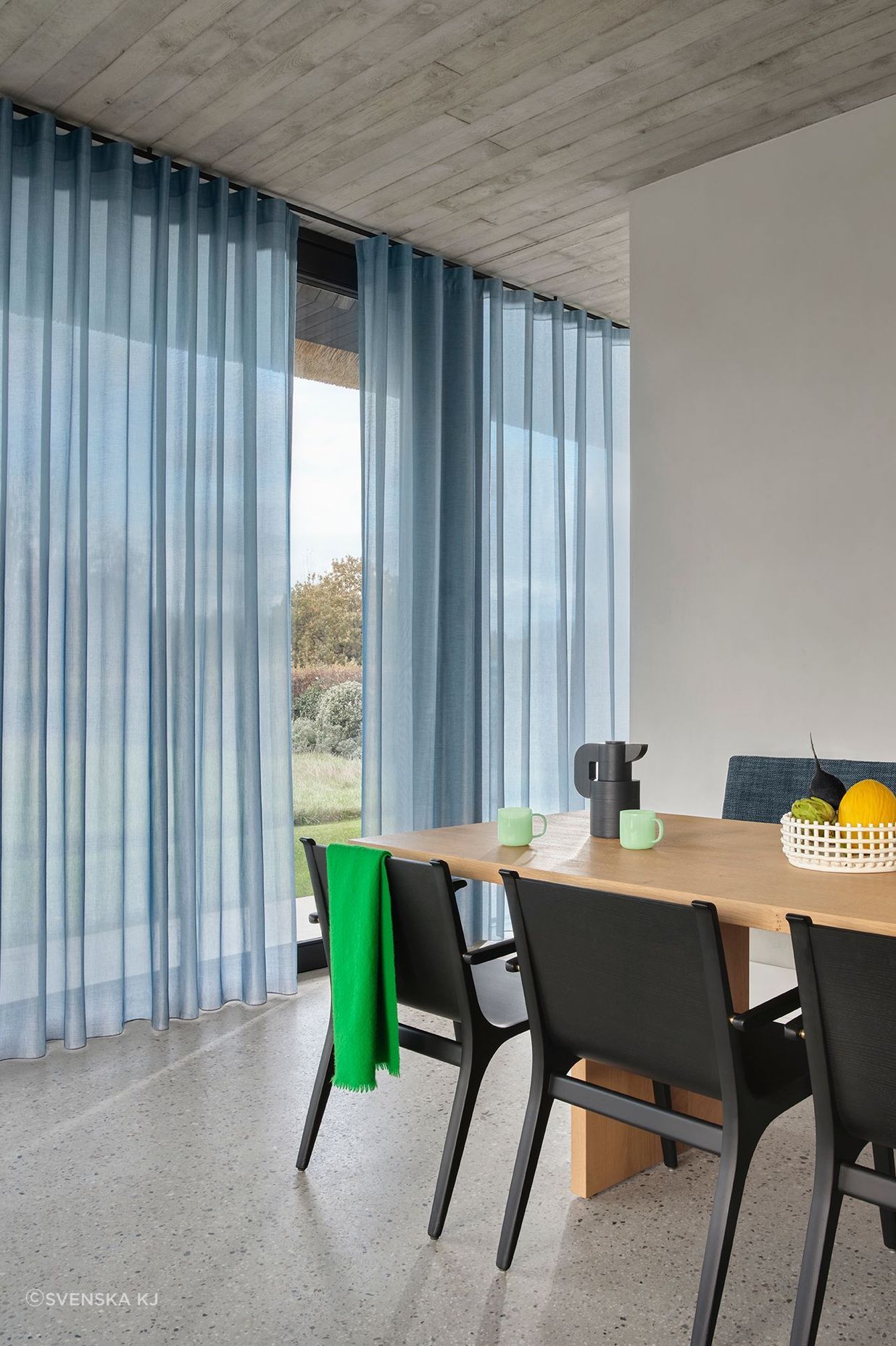Threads of change: weaving an eco-elegance with sustainable commercial textiles
Written by
25 September 2023
•
4 min read

Textiles play a critical role in elevating the design and functionality of any interior space. Gone are the days when design style could be separated from environmental responsibility. Today, conscientious fabric designers are challenged with harmonising artistic vision with eco-friendly practices.
Sustainable curtain fabrics are typically made from renewable, organic, or recycled materials, reducing the carbon footprint associated with their production and mitigating the negative impact on the environment. That businesses demonstrate their commitment to eco-conscious practices can be witnessed in the surge of sustainable commercial textiles in corporate offices and hospitality spaces, echoing nature's serenity and cocooning guests in sustainable luxury.
From an artist cooperative to a trendsetter in colour and design
The Dutch fabric manufacturer De Ploeg has been designing commercial and residential fabrics for a century and is known for quality textiles across Europe. Founded in 1923 as an artist cooperative, the talented design team at De Ploeg specialises in creating fabrics that are both visually striking and technically functional. With a strong emphasis on quality, innovation and sustainability, De Ploeg is also a trendsetter in colour and design forecasting.
Since 1989, the Sydney-based fabric supplier Svenska KJ has been the exclusive distributor for the De Ploeg range in Australia and New Zealand.
Guided by design aesthetics, sustainability, affordability and comfort, SvenskaKJ has been operating since 1961 as a family-owned business and specialises in superior commercial-grade textile ranges from mills in Australia, Europe and the US, offering architects and interior designers an extensive range of colours and textures that suit any soft furnishing project.
“At Svenska KJ, we are passionate about providing premium interior textiles that bring design visions to life. Comfort, people and the environment are central to our company principles,” says Svenska KJ’s Director, Natasha Lander.
Browse the Svenska KJ curtain collections



Curtains made from recycled plastic bottles
Svenska KJ recently introduced the latest sustainable curtain collection from De Ploeg, which not only represents the essence of sustainability and timelessness but also breathes new life into discarded materials, supporting a circular economy.
These airy, flowing curtains are made from post-consumer waste, including PET bottles and fashion industry remnants that produce a robust, yet flexible yarn. De Ploeg also recycles cotton waste from the textile industry. This approach eliminates the need for dyeing by thoughtfully selecting colours from residual products that create vibrant, sustainable yarns.
Furthermore, DePloeg collaborates with renowned suppliers, such as Trevira, which collects pre-consumer waste and turns it into new raw materials. Residual materials, edging, offcuts and faulty pieces are collected and processed into high-quality yarns. The refined Trevira CS yarn, for example, has fire-retardant properties. The dynamic weave is soft, elegant in appearance and very easy to look after.
Read more about De Ploeg recycled textiles
With a commitment to responsible choices, this new curtain collection represents a departure from fleeting aesthetic trends, focusing instead on the enduring design that matches our vision.



Minimising environmental impact
In line with De Ploeg’s sustainability initiatives, Svenska KJ is also committed to minimising its impact on the environment, believing style does not need to be compromised and that an effective balance can be achieved through Environmental Sustainable Design (ESD).
“We understand that the world’s resources are limited and that manufacturing processes and artificial dyes and yarns contribute greatly to pollution,” says Natasha. “Therefore, sourcing our fabrics from like-minded suppliers, who are ISO14001 and ISO9001 accredited, is a no-brainer.”
Svenska KJ’s environmental policy comprises the following activities:
- Showing a preference for renewable natural fibres, such as wool
- Attention to durability to maximise product life and reduce waste
- Research and preference for products that surpass environmental standards
- Acquiring suppliers with ISO 14000 environmental accreditation
- Recycling waste wherever possible, both in the warehouse and office
- Exercising energy management to reduce the production of greenhouse gases
- Efficient use of freight to minimise transportation footprint
- Focus on lasting quality and recyclable fabrics to avoid landfill
- Find innovative ideas for fabric waste recycling such as clothing and cushions
More from Svenska KJ on ArchiPro.